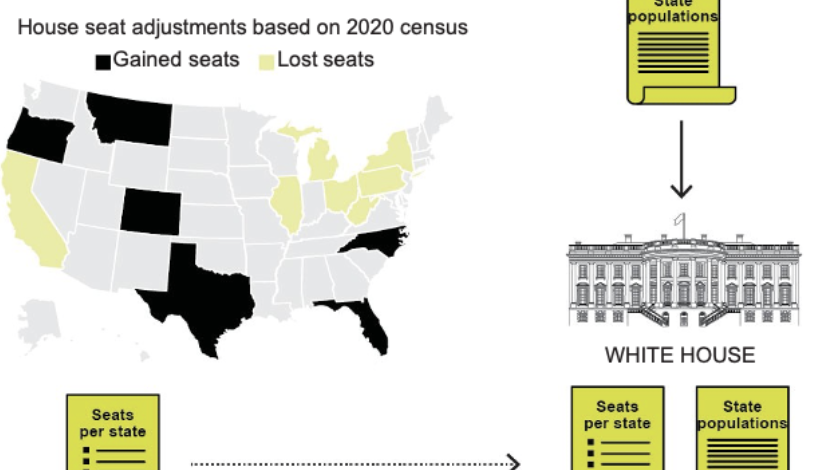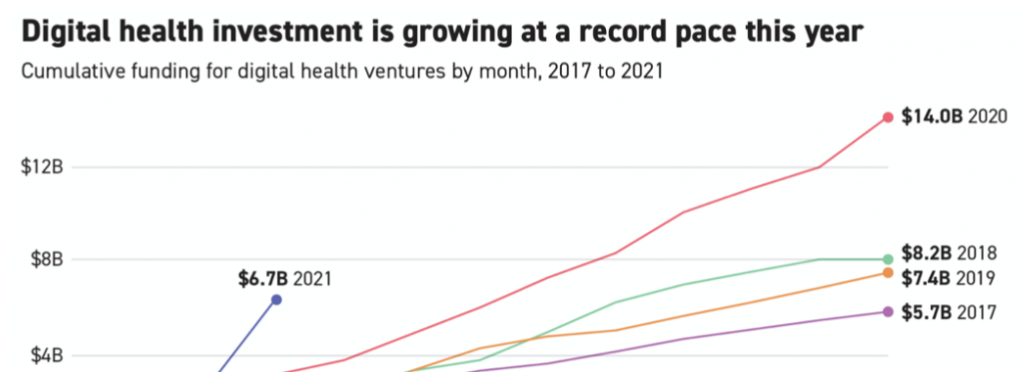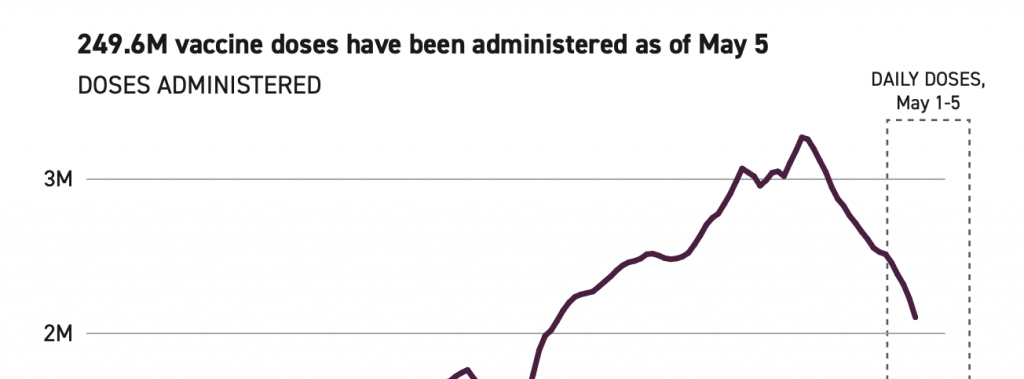More Info: Michael DiMaria | Partner and SW Regional Director | 602-717-3891 | [email protected]
Thanks for your interest in Washington, D.C., and thanks for reading This Week in Washington.
This is a recess week in Washington – at least for the Senate – so I took the time to reflect rather than report in Heard on the Hill about President Joe Biden and Senator Tim Scott. The President gave his State of the Union message last week and Senator Scott gave the Republican response; two very different speeches by two very different individuals. Congressman Erik Paulsen wrote an article on the President’s estate tax proposal and the impact it will have on family businesses, ranches, and farms.
Total Spectrum Senior Partner John McKechnie has been working in and with the financial services sector for over 30 years. He has written an update on pending activity in the Senate and House Financial Services Committees. Ramona Lessen provides briefs on two House hearings held this week, one on lowering the cost of prescription drugs and another on climate and energy research at the Department of Energy.
We will be back May 19th with another This Week in Washington and the next installment of Total Spectrum Spotlight. Be well.

Steve Gordon, Managing Partner
Heard on the Hill
By Steve Gordon, Total Spectrum Managing Partner
President Biden gave his State of the Union Address last Wednesday, which was one day short of the first 100 days of his presidency. Senator Tim Scott from South Carolina gave the Republican response.
The Senate is out of session this week, so it is a good time – some would say high time – that we put the wide-angle lens on the apparent transformation of Joe Biden from a moderate in the Senate to a progressive President. I would also like to give a little background on Senator Tim Scott, and then we will close with ‘odds and ends.’
Last Year’s Democratic Primary
Almost all the initial energy in the 2020 Democratic primaries was on the progressive side. The three leading progressive candidates – Senator Bernie Sanders, Senator Elizabeth Warren, and Mayor Pete Buttigieg – each tried to build a national campaign and each failed. Mayor Michael Bloomberg entered the race late as a self-funder and wanted to build a campaign around his brand of a common-sense progressive. But Mayor Bloomberg’s first debate performance was unnerving, and his second debate was not much better. Senator Amy Klobuchar from Minnesota appealed to Midwesterners with her blend of common sense and a progressive philosophy. She thought she could win in Iowa and that would be a springboard into other primaries, but her votes came from rural and suburban Iowa, while liberals and progressives from Iowa’s cities and colleges divided their votes among other candidates.
The progressive base did not support Joe Biden in the early primaries. He was considered too moderate, too establishment, and some people thought he was yesterday’s news. The base wanted someone who would carry their progressive ideals. But more than anything, they hated and disdained President Trump and they were looking for a candidate who could win in November.
Joe Biden’s campaign limped into South Carolina. But Congressman James Clyburn anointed Vice President Biden at the beginning of the South Carolina primary, and a win in South Carolina led to other wins. Democrats of all stripes – even progressives – came around to Joe Biden because he looked like he was the one who could defeat President Trump.
Senator Joe Biden becomes President Joe Biden
Democrats who worked with Joe Biden in the Senate have told me that he fit moderate Delaware like a glove. He had a love for Amtrak, a great feel for foreign affairs, and he was a strong supporter of organized labor. Senator Biden was considered a moderate, and I am told that his colleagues from both sides of the aisle liked and respected him.
This view of a moderate Senator Joe Biden does not square with the progressive President Joe Biden, who wants to meet the moment with a transformational agenda.
The view of many in Washington is that President Biden knows he cannot lose the base of his party and win reelection. I am told that he watched President Jimmy Carter govern to the right of the Democratic base and President George H. W. Bush govern to the left of the Republican base, and will not make that same mistake.
It is also quite possible that President Biden feels freed from his role of legislating at or near the center of the Senate so that his views would fit a moderate state like Delaware.
One last observation: the Biden campaign clearly understood that many suburbanites and independents wanted a change in style. President Trump wanted to be a part of the daily story, and most often was. President Biden talks tame, speaks in a very hushed voice, talks about bipartisanship, and works best behind the scenes. Each of those attributes plays well with these voters.
Polls show that President Biden has a relatively significant favorability rating compared with other recent presidents at the benchmark of 100 days. But much more significant is that he has very low negative ratings.
I am a great believer in the pendulum theory in politics. The pendulum theory is best described by saying that there would never have been a President Reagan without a President Carter. There would not have been a President Clinton without a President George H. W. Bush, not a President George W. Bush without a President Clinton, not a President Obama without a President George W. Bush, not a President Trump without a President Obama… and there would not have been a President Joe Biden without a President Trump.
Senator Tim Scott – a rising star
Erik Paulsen and I are both friends and fans of Senator Tim Scott. Erik served with Congressman Scott in the House of Representatives. Former Congressman Cory Gardner of Colorado introduced me to then-Congressman Tim Scott in 2011. Later, the two served together in the Senate, and Senator Scott’s chief of staff is also from Colorado, so I have had an opportunity to see and watch Tim Scott over the past 10 years.
Senator Scott serves on the Senate Committees on Finance; Banking, Housing, and Urban Affairs; Health, Education, Labor and Pensions; Small Business & Entrepreneurship; and Special Aging. He played a leading role in negotiating the 2017 Tax Cuts and Jobs Act in the Finance Committee, and he was the author of the Opportunity Zones program in that Act.
The Senator speaks about how his family came from “cotton to Congress” in one generation, and that education and the free enterprise system are the keys to a better future. He is very smart, witty, and exceptionally comfortable in his own skin.
The political hospital and graveyard are both dotted with outstanding people who delivered the official response to the State of the Union message and failed to measure up to the hype. Tim Scott had 20 pounds of pressure on him, but he knocked the ball out of the park. Senator Scott has an unlimited future.
Odds and Ends
Infrastructure. Senator Shelley Moore Capito – interviewed by Erik Paulsen in our most recent Total Spectrum Spotlight – prepared the Senate Republican response to the President’s infrastructure proposal. It is reasonable to assume that there is some potential for compromise between the President’s proposal and Senator Capito’s proposal. But it is very hard to see any Republican voting to pay for President Biden’s proposal by gutting the 2017 Tax Cuts and Jobs Act.
Earmarks. The Senate Republican caucus resoundingly defeated a proposal to allow their members to participate in the earmark changes approved by Senate Democrats and both the House Republican and Democratic caucuses. However, the Senate Republican caucus vote on earmarks was nonbinding.
Financial Services Update
By John McKechnie, Total Spectrum Senior Partner
Work Continues to Implement Biden Financial Services Agenda
House and senate Democratic leaders have Intensified their push to enact President Joe Biden’s economic strategy. While the headlines around the issue emphasize massive infrastructure and social program spending, there are financial services aspects worth examining on Capitol Hill and in the regulatory arena.
Aside from Biden’s ambitious plans and fiscal 2022 appropriations bills, Congress will also look to tackle a slate of financial measures.
- Consumer Credit Reports: House Democrats have pushed for legislation to give consumers more control over their credit reports, which can determine whether they qualify for mortgages, student loans, and other types of credit. The legislation follows concerns about inaccurate credit reports and a 2017 data breach at Equifax which affected about 150 million consumers. But Democratic leaders have yet to reintroduce legislation on credit reports, to the surprise of many industry observers and consumer advocates. There is a strong possibility that at least one bill will emerge this summer.
- Corporate Diversity Disclosures: The Improving Corporate Governance Through Diversity Act (H.R. 1277 and S. 374) would require publicly traded companies to disclose the race, ethnicity, gender, and veteran status of their board members and executives. It would also direct the Securities and Exchange Commission to create an advisory panel to issue recommendations for increasing board diversity. Neither bill has received a vote in their respective chambers, although senior Democratic staff expect them to move this fall.
- Pandemic Risk Insurance: Retailers, media producers, and other businesses hit hard by COVID-19 shutdowns called on lawmakers to establish a loss-sharing program that offers insurance coverage, with a federal backstop for business losses caused by future pandemics. Subsequently, Rep. Carolyn Maloney (D-NY) introduced the Pandemic Risk Insurance Act, modeled in part after the Terrorism Risk Insurance Program. Under that proposal, once insurers incur more than $250 million in aggregate losses from a covered public health emergency, the federal government would cover 95% of insured losses.
Expansion of federal housing programs: The Biden infrastructure package included almost $200 billion in federal funds directed at low-income homeowners and renters who are struggling with housing payments due to COVID-19. These programs will flow through the Department of Housing and Urban Development and the Federal Housing Administration. In late April, Senator Elizabeth Warren (D-MA) introduced a separate measure that expands requirements for financial institutions to serve low-income communities and adds federal grants for affordable housing. Look for the Senate Banking Committee to advance this Warren bill later in the summer.
Additionally, both Congress and the Federal Reserve are increasing oversight of digital currencies, including bitcoin. House and Senate financial committees are holding hearings on stock market volatility tied to cryptocurrencies, and Fed Chairman Jerome Powell stated that the central bank is involved in a large-scale research and development project on the digital dollar. He noted that questions of whether adopting such a currency would provide a public benefit have yet to be resolved. “It’s a very large, complex project… this is really the beginning of the age of digital currency,” commented Powell.
Finally, a new, more aggressive regulator is about to take the reins at the Consumer Financial Protection Bureau (CFPB). Rohit Chopra, a member of the Federal Trade Commission and acolyte of Senator Elizabeth Warren, is awaiting expected Senate confirmation. He told the Senate Banking Committee during his nomination hearing that he promises “a proactive approach to the bad actors in the financial services sector.” Look for Chopra to be seated at CFPB by the fall, and to actively work to reverse the deregulatory steps taken by now departed Trump-appointed Director Kathy Kraninger.
Opinion: President Biden’s Estate Tax Plans Would Hit Middle Income Families and Impact Many Family Businesses, Ranches, and Farms
By Congressman Erik Paulsen, Total Spectrum Strategic Consultant
President Biden and his administration will soon release the details of their plan for individual tax increases. He promised during the 2020 presidential campaign to lower the estate tax exemption, currently $11.7 million to $3.5 million and raise the estate tax rate from 40 percent to 45 percent, but in a major surprise it appears that he will keep the current exemption and estate tax rate in place.
However, the Biden administration wants to require estates to pay taxes on unrealized capital gains on assets that are now exempt from that tax when the owner of those assets dies. President Biden has pledged that his tax increases would only fall on the wealthy, but his proposed estate tax changes would significantly impact middle class families and family run businesses, ranches, and farms.
The current law indicates that when the owner of assets such as a personal residence or stock passes away, his or her property receives a ‘stepped-up’ basis for estate tax purposes reflecting the fair market value of the property. President Biden calls this a loophole even though it has been a basic principle of tax policy and part of the tax code since 1994. Repealing the ‘stepped up’ basis provisions and taxing capital gains at death will be a real hardship for families who are not wealthy by any definition.
Here is one example. Mr. and Mrs. Brown never had annual earnings over $400,000, the threshold that President Biden differentiates between middle class and wealthy families. They worked hard and purchased their dream home in Phoenix 50 years ago for $200,000. When they passed away, their house had increased in value to $1.5 million. Their will gave their home to their only child which she intended to use as her personal residence. Under President Biden’s proposal, the Browns’ estate would be subject to a capital gains tax of as high as 39.6 percent based on the current value of their house, resulting in a tax bill of approximately $514,000. The Brown’s estate would have to liquidate whatever assets the Browns may have held at death – including the house – unless Mr. and Mrs. Brown’s daughter can come up with the taxes out of her own pocket.
Here is a little different example. Mr. and Mrs. Smith bought 4,000 acres of land in Arizona’s Santa Cruz County 50 years ago for $1 million and became successful cattle ranchers. When the Smiths passed away, the total value of the ranch based on the land and the Smiths’ reputation, including the quality of the cattle they raised, was $15 million. Under President Biden’s estate tax proposals, their estate would be required to pay a 45 percent tax on the value of the estate over $3.5 million or approximately $5,175,000. The estate would have little choice but to sell the ranch just to pay the tax – and send pink slips to their employees. It would be very unlikely that the Smiths would be able to leave much of their successful ranch to their children.
President Biden has proposed one approach to handling the estate tax. Other Democrats are proposing their own estate tax changes.
Senators Chris Van Hollen (D-MD), Cory Booker (D-NJ), Bernie Sanders (Independent-VT), Elizabeth Warren (D-MA), and Sheldon Whitehouse (D-RI) recently introduced the Sensible Taxation and Equity Promotion (STEP) Act which expands on the President’s plans.
The STEP Act includes exemptions to focus proposed estate tax proposals more on unrealized capital gains over $1 million and adds an additional exclusion of up to $500,000 for personal residences. On top of the $1 million capital gains exemption, this proposal includes an exclusion of up to $500,000 for personal residences – which is carried over from the current law. Assets held in retirement accounts would continue to be exempt from the capital gains tax. Gifts and bequests to charities would also be exempt.
The STEP Act would somewhat reduce but not eliminate the financial burdens the Browns’ estate would face from taxing unrealized capital gains after death dealing with their private residence. The Smiths’ problems with their ranch would not be helped by the STEP Act. Their estate would be allowed to pay the tax over a 15-year period – interest only for the first five years and then 10 equal payments for the remaining 10 years. But selling the property would require payment of the tax in full, and there would be a lien attached to any property which would likely prevent the Smiths’ estate from refinancing the property without paying off the tax owed the IRS.
It is hard to predict the changes Congress will make to either President Biden’s estate tax plan or the STEP Act, but there is no doubt that the Administration will strongly push changes to the estate tax laws. Republicans are not expected to vote for any changes to the individual tax code, especially those changes that hit the middle class and individuals who run family businesses, ranches, and farms. Senate Democrats will be forced to try to pass these tax changes under reconciliation, which means that they will need the support of all 50 Senate Democrats.
Erik Paulsen is a strategic consultant with Total Spectrum. He represented Minnesota in the U.S. House of Representatives from 2009-2019 and was chairman of the Joint Economic Committee.
This op/ed originally appeared in The Well News on May 3, 2021. The views expressed in this article are the writer’s own.
Hearing Report
By Ramona Lessen, Executive Director, Total Spectrum
House Energy and Commerce Subcommittee on Health hearing on “Negotiating a Better Deal: Legislation to Lower the Cost of Prescription Drugs”
Tuesday, May 4, 2021 – 11:30am
To view a livestream of the hearing please click here.
Opening Statements:
Congressman Frank Pallone Jr, (D-NJ), Committee Chairman
Congresswoman Anna G. Eshoo (D-CA), Subcommittee Chairwoman
Congressman John Joyce, MD (R-PA), Subcommittee Member
Witnesses:
Therese Ball
Patient
Michael A. Carrier
Distinguished Professor of Law
Rutgers Law School
Rachel Sachs
Associate Professor of Law
Washington University in St. Louis, School of Law
Gaurav Gupta, M.D., M.S.E.
Founder
Ascendant BioCapital
Khrystal K. Davis, J.D.
Rare Disease Caregiver & Patient Advocate
Texas Rare Alliance Founding President
House Science, Space and Technology Subcommittee on Energy hearing on Climate and Energy Science Research at the Department of Energy
Tuesday, May 4, 2021; 11:00 a.m.
To view a livestream of the hearing please click here.
Opening Statements:
Congressman Jamaal Bowman (D-NY), Subcommittee Chairman
Congresswoman Eddie Bernice Johnson (D-TX), Committee Chairwoman
Congressman Randy Weber (R-TX), Subcommittee Ranking Member
Witnesses:
Dr. Kristin Persson
Director, Molecular Foundry
Lawrence Berkeley National Laboratory
Dr. Fikile Brushett
Associate Professor of Chemical Engineering
Massachusetts Institute of Technology
Dr. Esther Takeuchi,
Chair, Interdisciplinary Science Department
Brookhaven National Laboratory
Dr. Xubin Zeng,
Professor, Hydrology and Atmospheric Sciences
The University of Arizona
Dr. Narasimha Rao
Associate Professor of Energy Systems
Yale School of the Environment
2020 reapportionment: Power shifts slightly to South
and West
The Apportionment Process Explained

The Redistricting Process Explained

What you need to know about New Applications of Artificial Intelligence Software in Health Care

What you need to know about REAL ID

Vaccine tracker: 56.7% of the U.S. has received
first dose

Congressional Calendar
All times in EDT
Monday, May 3
- 11:00am House Oversight and Reform Committee hearing – Improving Government Accountability/Transparency.
- 11:00 am House Armed Services Subcommittee on Readiness hearing – Amphibious Assault Vehicle Mishap Investigation.
- 12 noon House Appropriations Committee – Member’s Day hearing.
- 12 noon House Education and Labor Subcommittee on Workforce Protections hearing – Racist Exclusions from the Fair Labor Standards Act.
Tuesday, May 4
- 10:00 am House Appropriations Subcommittees on Commerce, Justice, Science and Related Agencies (117th Congress) hearing – Justice Department budget.
- 11:00 am House Armed Services Subcommittee on Intelligence and Special Operations hearing – Countering Weapons of Mass Destruction for FY 2022.
- 11:00 am House Science, Space and Technology Subcommittee on Energy hearing – Climate/Energy Science Research.
- 11:00 am House Oversight and Reform Subcommittee on Economic and Consumer Policy hearing – Organ Transplantation System Reform.
- 11:30 am House Energy and Commerce Subcommittee on Health hearing – Lowering Prescription Drug Costs.
- 12 noon House Appropriations Subcommittee on Defense hearing – National Guard and Reserves.
- 12 noon House Financial Services Subcommittee on Housing, Community Development Insurance hearing – Housing Resilience/Climate Change.
- 1:00 pm House Foreign Affairs Committee hearing – Unfolding Crisis in Burma.
- 2:00 pm House Homeland Security Subcommittee on Transportation and Maritime Security hearing – Transportation Security Administration Workforce.
- 2:00 pm House Veterans Affairs Committee Markup – Pending Legislation.
- 3:00 pm House Natural Resources Subcommittee on Water, Oceans and Wildlife hearing – Coral Reef Conservation.
Wednesday, May 5
- 10:00 am House Appropriations Subcommittees – The Departments of Labor, Health and Human Services, Education and Related Agencies (117th Congress) hearing – Education Budget.
- 10:00 am House Judiciary Committee hearing – US Copyright Office Oversight.
- 10:00 am House Veterans’ Affairs Committee hearing – Pending Legislation.
- 10:00 am House Appropriations Subcommittee on Homeland Security hearing – TSA Budget/Operations Pandemic Implications.
- 10:00 am House Oversight and Reform Subcommittee on civil Rights and Civil Liberties (117th Congress) hearing – Midship Pipeline/Landowners.
- 11:00 am House Foreign Affairs Subcommittee on Europe, Energy, the Environment and Cyber hearing – Reaffirming the Good Friday Agreement.
- 11:00 am House Natural Resources Committee Markup – Pending Legislation.
- 11:00 am House Ways and Means Committee Markup – Budget Views and Estimates/Retirement Security.
- 11:30 am House Energy and Commerce Subcommittee on Energy hearing – Electric Vehicle Legislation.
- 12 noon House Appropriations Subcommittee on Defense hearing – Army Budget.
- 12 noon House Education and Labor Subcommittee on Health, Employment, Labor and Pensions hearing – Lower Drug Costs/Affordable Health Care Access.
- 2:30 pm House Appropriations Subcommittee on Military Construction, Veterans Affairs and Related Agencies hearing – Military/VA Related Agencies Outlook.
- 2:30 pm House Homeland Security Subcommittee on Cybersecurity, Infrastructure Protection and Innovation hearing – Cybersecurity Crisis Policy Solutions.
- 3:00 pm House Armed Services and House Foreign Affairs Subcommittees on Strategic Forces and International Development, International Organizations and Global Corporate Social Impact Joint hearing – International Rules-based order in Space.
Thursday, May 6
- 10:00 am House Appropriations Subcommittee on Homeland Security hearing – US Secret Service Operational Priorities.
- 10:00 am House Veterans’ Affairs Subcommittee on Oversight and Investigations hearing – VA Workforce Diversity-Equity-Inclusion Initiatives.
- 11:00 am House Science, Space, and Technology Subcommittee on Research and Technology hearing – National Science Foundation Research (Part II).
- 11:00 am House Transportation and Infrastructure Subcommittee on Railroads, Pipelines and Hazardous Materials hearing – High-Speed Rail/Emerging Rail Technologies.
- 11:00 am House Oversight and Reform Committee hearing – America’s Black Maternal Health Crisis.
- 11:00 am House Natural Resources Committee – Member’s Day hearing.
- 11:30 am House Energy and Commerce Subcommittee on Communications and Technology hearing – Broadband Access/Affordability Disparities.
- 12 noon House Financial Services Committee hearing – GameStop Short Selling/Market Volatility (Part III).
- 12:30 pm House Foreign Affairs Committee hearing – Atrocities Against Uyghurs/Minorities in Xinjiang.
- 1:00 pm House Appropriations Subcommittee on Energy and Water Development hearing – Energy Budget.
- 1:00 pm House Small Business Subcommittee on Innovation, Entrepreneurship and Workforce Development hearing – Growing Jobs through Infrastructure Investment.
- 2:00 pm House Appropriations Subcommittee on Agriculture, Rural Development, Food and Drug Administration and related agencies hearing – USDA rural Development.
- 2:00 pm House Appropriations Subcommittee on Commerce, Justice, Science and related agencies hearing – Commerce Budget.
- 2:00 pm House Administration Subcommittee on Elections hearing – Voting Rights – Voter List Purges.
- 2:00 pm House Homeland Security Subcommittee on Oversight, Management and Accountability hearing – Addressing Migration Rush Factors.
- 2:30pm House Education and Labor Subcommittee on Early Childhood, Elementary and Secondary Education hearing – COVID-19 Impact on Students with Disabilities.
- 3:00 pm House Armed Services Subcommittee on Readiness hearing – Ship/Submarine Maintenance.
Friday, May 7
- 12 noon House Appropriations Subcommittee on Defense hearing – Air Force/Space Force Budget.
- 12 noon House Financial Services Committee hearing – Human-Centered AI Addressing Social Justice.
This e-newsletter is produced by Total Spectrum/Steve Gordon and Associates and the Arizona Chamber of Commerce and Industry. The views expressed herein may include subjective commentary and analysis that are the views of the editors and authors alone. Information in this e-newsletter is obtained from sources believed to be reliable, but that cannot be guaranteed as independently investigated or verified. Information in this e-newsletter is not an endorsement, advertisement, recommendation, or any type of advice; political, legal, financial or otherwise. For questions about the content of this e-newsletter, please contact the Arizona Chamber of Commerce and Industry.















Add comment